
Cookies and Privacy policy

A lot of people agree that it is hard to find another country in Europe with such a complex league system as the Netherlands has. Despite the fact that professional club level has only two levels, its rules are extremely difficult to comprehend for people who are unoriented in this field.
It is the highest level of the Dutch sports league in the hierarchy. The league that is simultaneously the highest central level (the 1st league level) was established in 1956 by the Royal Dutch Football Association. Since then the Dutch championships take place within club competition. However, their story reaches back to 1888 when it had its beginning.
The winner of the Eredivisie table claims the Dutch national championship. At the end of each season, the club at the bottom is automatically relegated to the second level of the Dutch league system, the Eerste Divisie (First Division). At the same time, the champion of the Eerste Divisie will be automatically promoted to the Eredivisie. Teams from Eredivisie are competing in the qualifications for the right to play in European cups such as Champions League and Europa League.
Only clubs owing the professional status may play in Eredivisie, Once, all formalities have been complied with, teams receive annual license to play at professional level. For many years the highest level of the Dutch competition has been renamed according to the actual sponsor. The Eredivise bears a name since 2005.
Two of the worst teams are relegated and replaced by two of the best teams from Eerste Divisie. The Dutch football champion is qualified to the Champions league group stage and the team from the second place is qualified to third qualifying round. One team participates to the Europa League group stage. Other teams are competing each other in play-offs for the qualification of the cup competition.
In the entire history of Eredivise, the club which most frequently stood on the top step of the podium was Ajax Amsterdam which won Gold Cup 25 times. PSV Eindhoven comes further to the list as it won 20 times. The third place is taken by Feyenoord Rotterdam which won so far 10 times and is currently the national champion.
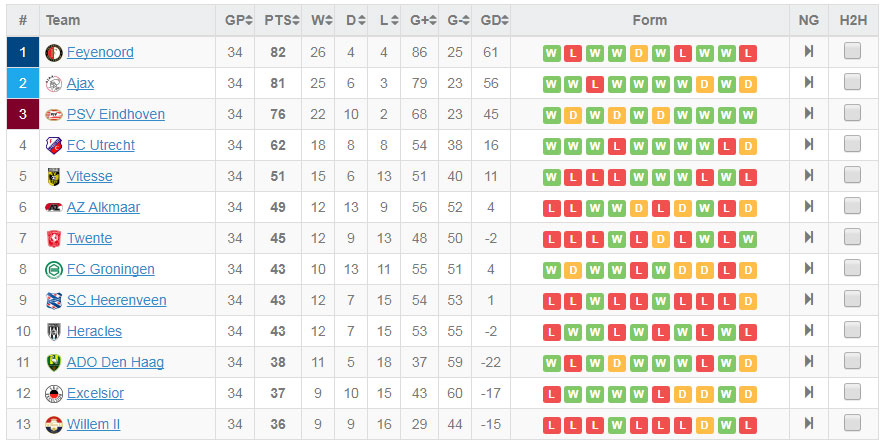
Dutch league table season 2016/2017
This is the second-highest tier of football in the Netherlands. The Eerste Divisie consists of 20 clubs and two of the best teams are promoted to Eredivisie.
Its name also has changed due to the actual sponsor. Currently, it is called Jupiler League from the Jupiler beer branch.
Second division’s games are divided into spans that comprise of 6 rounds. It is called periods. The winner of the each of them is given the right to play in play-offs in order to be promoted to Eredivisie. The team who won the second division is automatically promoted to Eredivisie. The second place in Eredivisie is given a team which won above-mentioned play-offs.
Dutch cup it is a competition in the Netherlands organised by the Royal Dutch Football Association in which all teams that are registered may participate. It is organised since 1899.
Ajax Amsterdam is the most successful in this competition as it won 17 times. PSV is on the second place.
Johan Cruyff Shield
Johan Cruyff Shield – it has been named after the Dutch football player Johan Cruyff.
It takes place yearly since 1991. The winner is decided in one match only, played by the winner of the national football league (the Eredivisie) and the winner of the national KNVB Cup. In the event of a team winning both the Eredivisie and the KNVB Cup, the Johan Cruyff Shield will be contested between that team and the runner up in the national league. The match traditionally opens the Dutch football season one week before the Eredivisie starts.
In case of this competition, Ajax is not a leader but PSV which won 11 times. Ajax is second with 8 wins. On the third place is Feyenoords Rotterdam lags behind as it won only 2 times.
This tournament is worth mentioning but unfortunately nonexistent. The competition was annually hosted by club Ajax Amsterdam.
It was inaugurated in 1975. In each edition of the tournament four teams took part. Each team played four matches on the host’s stadium. The competition usually lasted three days and one day was destined at rest and gasping for breath.
The tournament has used an unusual point scoring system. The team was given three points for a win, one for a draw and zero for a loss. However, in order to elevate pageantry of this competition an additional point was awarded for each goal scored. So the result 3-1 means that the winner was awarded with six point and the losing teams with only one point.
The tournament was quarterbacked before the football season so there was no pressure on the teams that took place, however it was excellent opportunity to test skills, tactics ahead of the upcoming league opening.
Ajax Amsterdam relishes the highest number of wins, namely 10.
It is the governing body of football in the Netherlands. It is the only legal representative of the Dutch national football team. In 1989, the Royal Dutch Football Association was founded, 15 years later joined to FIFA and in 1954 became a member of UEFA.
Over four thousand clubs, the same number of coaches and over one million two hundred thousand players are registered in this association. It is divided into six regional associations.
More about Royal Dutch FA
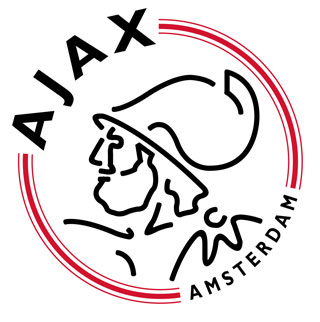
It is also called Ajax Amsterdam or simply Ajax. Ajax is the most famous Dutch professional football club whose name is well-known all over the world.
The club based in Amsterdam was founded in March 1990. Ajax has been the most successful club in the Netherlands when it comes to the sports league. It is one of the clubs on the Old Continent who has all the European football trophies in its collection. In 1972, it became the holder of the Treble. It means the winning of national championship, the Dutch Cup and the European Cup. This achievement is one of the most important in the club's history.
The list of club’s achievements is really impressive. It is the record holder of the national championships as it won 33 times. Ajax celebrated win of the Dutch Cup 18 times and won Super Cup 8 times.
As far as the European Cups are considered, Ajax also succeed in this field. The triumph of the Champions League, Ajax celebrated four times, once won Europa League and three times won UEFA Super Cup.
As far as Ajax players are concerned, Piet van Reenen is the player with the highest number of goals scored in the Dutch league. He scored 273 goals in 237 matches. The second place is taken by the legend of the Dutch football, namely Johan Cruyff who scored 205 goals in 275 matches. The highest number of matches in the club colors was played by Sjaak Swart who made appearance in 463 matches and Wim Suurbier who appeared in 393 matches.
The interesting thing is that no player from the Dutch club may wear a team shirt with number 14 as the testimonial to Johan Cruyff. It was acknowledged that number always will be assigned to the legendary footballer.
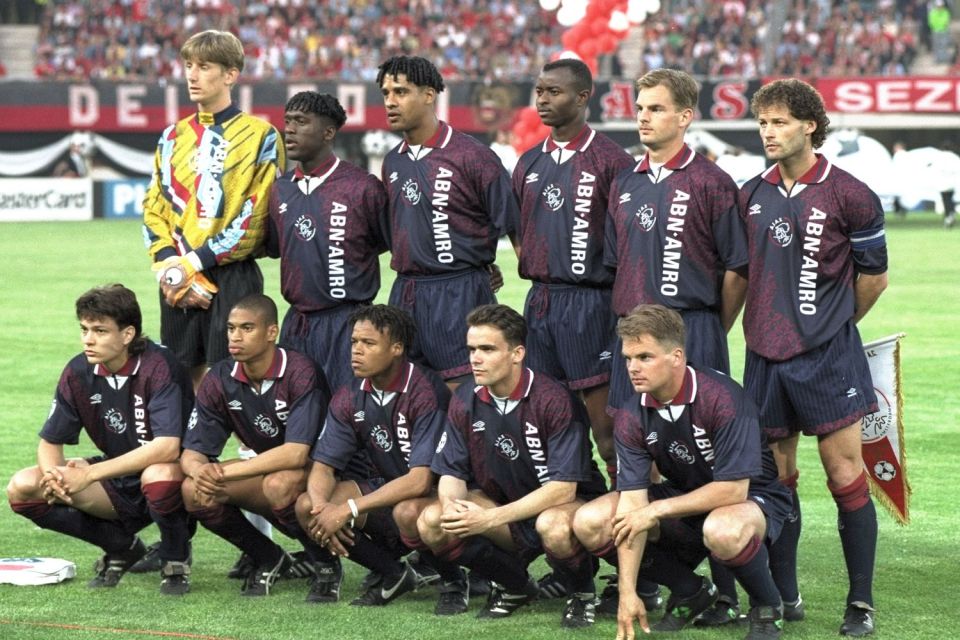
Louis van Gaal will undoubtedly pass into the history of Amsterdam club as he is one of the most titled coaches in the football history not only the Dutch one.
He started his football career as the player, however, he did not achieve any triumph in this field. Then, he decided to start his coach career.
For almost eleven years he was working his way to the top in Ajax Amsterdam. He started his coach career by training national under-21 football team and eventually took over Leo Beenhakker as head coach in 1991.
Six years of his being a coach are well-known to the football fans and are considered to be the best six years in the club’s history.
The new coach has achieved some significant successes in the first year of work. First of all, he managed to scout and burnish a few talents than soon shone discernibly with amazing skills on the pitch. Secondly, Ajax Amsterdam won the UEFA Europa League in the first season, then, the team added to its triumph the victory in Champions League and UEFA Super Cup.
Louis van Gaal was known for his fondness for iron discipline and well-planned tactics. In no way did this negatively affect the team game – in those days he was known worldwide for his offensive tactics. The coach is regarded as an author of Ajax revival on the national and European arena.
In 1997 he moved to FC Barcelona which he did not leave with any significant successes. His later career as a coach, including a coach of the Dutch national team, also did not make him famous. Many football fans accused him of being hidebound and overly attached to tradition. The golden age of Ajax under his rule absolutely must not be forgotten.
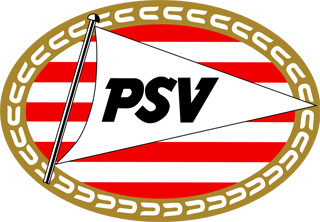
PSV it is the second most famous of Dutch sports clubs. Interestingly, the club was founded in 1913 as a team of Philips employees. It did not take long for them to transform into a fully professional football club.
Since 1914, this club has taken part in the league games in the Netherlands, after several years of promotions and successes, in 1929 it reached for the Champion title. The greatest glory of the team dates back to the 1970s when it enjoyed the triumph in the European League. Only ten years later, the players of Einhoven lifted the Champions League trophy when they won penalty shootout.
For the victory in the league the club reached already 23 times which situates it on the second place in the history of Dutch contests, right after Ajax Amsterdam. It also became the winner of the Dutch Cup 9 times.
An interesting fact is that two numbers in the Dutch team are reserved and do not appear on the players’ shirts. Number 12 is for football fans and number 9 – for the team mascot.
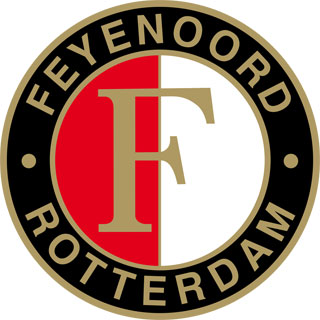
Feyenoord is the third most famous of the Dutch clubs. Its beginning dates back to 1908. One of the most titled Dutch clubs, both on the national and international arena. Together with Ajax and PSV it belongs to the so-called Dutch Big Three.
The club was founded by shipyward workers and was originally named Wilhelmina. Since that time, it reached for the victory in the Dutch league up to 15 times. In the gesture of triumph, it lifted the Dutch Cup 12 times and won the European Cup two times.
Number 12 is reserved, similarly to Einhoven, for the club’s fans.
Much is said about the rivalry between the club form Rotterdam and Ajax Amsterdam. The matches between these teams are called Klassieker.
This rivalry probably comes from the fact that Rotterdam and Amsterdam are the two biggest cities in the Netherlands, nonetheless completely different. There used to be some unpleasant incidents involving the supporters of both teams, one of them has even ended up with one fatality.
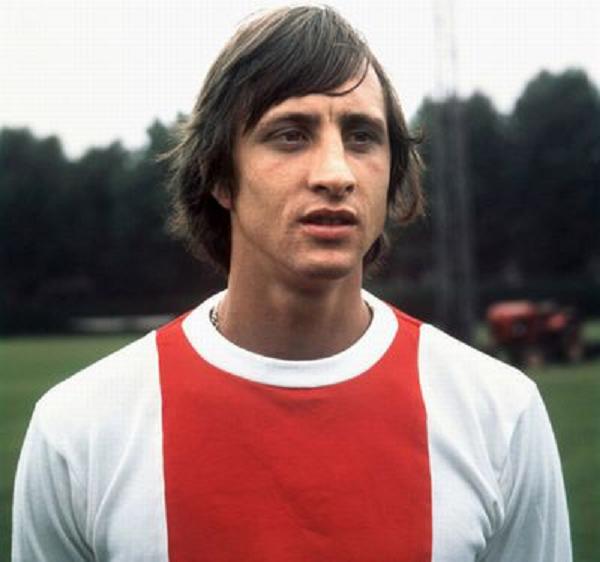
Despite the fact that the Dutch league has raised many players known worldwide, Johann Cruijff is the most famous.
Born in 1947 in Amsterdam, he has become a true legend of Dutch football and probably every fan of this sport associates his name.
The game in Ajax Amsterdam is considered to be his most successful times. He became recognised by the club’s fans in 1962 when a football magazine called him a rising talent. In 1964 the footballer began to play his first matches in which he already succeeded. One of the matches will go down in the history – the match in which at the age of 20 years he scored up to six goals in a single match!
Number 14 which until today is still reserved for him in Ajax, for the first time appeared on the shirt in 1970. The fans quickly got used to this change and started to identify the lucky number with the name of Cruijff.
With Cruijff, Ajax has become almost invincible and won almost all possible club honours. He himself collected his first Golden Ball in 1971 when the Amsterdam club won the European Cup.
Johan was often called a footballer player of the year two thousand due to the fact that he was ahead of his times so much. Many considered him a visionary who performed the impossible on the field. Its merits undoubtedly included charisma – most of the time he was a captain of the teams in whose ranks he actually played.
It is subordinated to the Royal Dutch Football Association which is their only legal representative. Probably every football fan associates the “orange” team called so because of the characteristic colour of their dress.
The first official match of the national team was held in 1905. It was a match with the Belgian team. Among the European elite, the Netherlands was only in the 1970s. Their biggest successes include treble reaching the finals of the World Championship. Unfortunately, those matches can be considered in the category of failures as none of them was won by the Netherlands.
For the first forty years of national team, the Netherlands strongly modelled after the English football trends. Hence, at that time, the coaches of the national team were only English.
The real flourishing of the Dutch national team began in 1974. It is called the Dutch era of total football. It was quite a specific style of game which consisted in the fact that there was no clear division on assistants, attackers or defenders in the team. The team is seen as a whole in which each player takes on the task that suits him best in a given time. This way of playing was original but effective, being based on the concept of continuous passes and moving towards the rival’s half.
Thus, 1976 has become the year in which the Dutch national team won the bronze medal of the European Championship and only two years later, won the silver during the World Championship.
There is no doubt that football in the Netherlands is a sport with an extremely long history and rich tradition. The supporters of the three biggest clubs agree that football is not only a sport but a religion. They faithfully follow the successes of their favourite teams, in case of the victory to celebrate it with them and in case of the defeat – to wipe tears.
 Albania (4)
Albania (4) Algeria (2)
Algeria (2) Andorra (4)
Andorra (4) Angola (1)
Angola (1) Antigua and Barbuda (1)
Antigua and Barbuda (1) Argentina (7)
Argentina (7) Armenia (4)
Armenia (4) Australia (7)
Australia (7) Austria (7)
Austria (7) Azerbaijan (3)
Azerbaijan (3) Bahrain (1)
Bahrain (1) Barbados (1)
Barbados (1) Belarus (4)
Belarus (4) Belgium (6)
Belgium (6) Benin (1)
Benin (1) Bermuda (1)
Bermuda (1) Bolivia (3)
Bolivia (3) Bosnia-Herzegovina (3)
Bosnia-Herzegovina (3) Botswana (1)
Botswana (1) Brazil (8)
Brazil (8) Bulgaria (6)
Bulgaria (6) Burkina Faso (1)
Burkina Faso (1) Cameroon (1)
Cameroon (1) Canada (1)
Canada (1) Cape Verde (1)
Cape Verde (1) Chile (4)
Chile (4) China (4)
China (4) Colombia (4)
Colombia (4) Congo (1)
Congo (1) Costa Rica (2)
Costa Rica (2) Crimea (1)
Crimea (1) Croatia (4)
Croatia (4) Cuba (1)
Cuba (1) Cyprus (4)
Cyprus (4) Czech Republic (6)
Czech Republic (6) Denmark (13)
Denmark (13) DR Congo (1)
DR Congo (1) Ecuador (2)
Ecuador (2) Egypt (2)
Egypt (2) El Salvador (1)
El Salvador (1) England (14)
England (14) Estonia (4)
Estonia (4) Faroe Islands (2)
Faroe Islands (2) Fiji (1)
Fiji (1) Finland (7)
Finland (7) France (7)
France (7) Gabon (1)
Gabon (1) Gambia (1)
Gambia (1) Georgia (4)
Georgia (4) Germany (9)
Germany (9) Ghana (1)
Ghana (1) Gibraltar (2)
Gibraltar (2) Greece (6)
Greece (6) Grenada (1)
Grenada (1) Guadeloupe (1)
Guadeloupe (1) Guatemala (2)
Guatemala (2) Guinea (1)
Guinea (1) Honduras (1)
Honduras (1) Hong Kong (2)
Hong Kong (2) Hungary (5)
Hungary (5) Iceland (3)
Iceland (3) India (2)
India (2) Indonesia (1)
Indonesia (1) International (1)
International (1) Iran (4)
Iran (4) Iraq (1)
Iraq (1) Ireland (6)
Ireland (6) Israel (5)
Israel (5) Italy (7)
Italy (7) Ivory Coast (1)
Ivory Coast (1) Jamaica (1)
Jamaica (1) Japan (8)
Japan (8) Jordan (1)
Jordan (1) Kazakhstan (5)
Kazakhstan (5) Kenya (5)
Kenya (5) Kosovo (1)
Kosovo (1) Kuwait (1)
Kuwait (1) Latvia (4)
Latvia (4) Lebanon (1)
Lebanon (1) Lesotho (1)
Lesotho (1) Liberia (1)
Liberia (1) Libya (1)
Libya (1) Liechtenstein (1)
Liechtenstein (1) Lithuania (4)
Lithuania (4) Luxembourg (4)
Luxembourg (4) Madagascar (1)
Madagascar (1) Malawi (1)
Malawi (1) Malaysia (2)
Malaysia (2) Mali (1)
Mali (1) Malta (3)
Malta (3) Martinique (1)
Martinique (1) Mauritius (1)
Mauritius (1) Mexico (4)
Mexico (4) Moldova (3)
Moldova (3) Montenegro (4)
Montenegro (4) Morocco (2)
Morocco (2) Mozambique (1)
Mozambique (1) N. Ireland (5)
N. Ireland (5) Namibia (1)
Namibia (1) Netherlands (8)
Netherlands (8) New Zealand (2)
New Zealand (2) Nicaragua (1)
Nicaragua (1) Nigeria (1)
Nigeria (1) North Macedonia (5)
North Macedonia (5) Norway (11)
Norway (11) Oman (1)
Oman (1) Pakistan (1)
Pakistan (1) Palestine (1)
Palestine (1) Panama (1)
Panama (1) Paraguay (2)
Paraguay (2) Peru (2)
Peru (2) Philippines (1)
Philippines (1) Poland (5)
Poland (5) Portugal (6)
Portugal (6) Puerto Rico (1)
Puerto Rico (1) Qatar (1)
Qatar (1) Romania (6)
Romania (6) Russia (8)
Russia (8) Rwanda (1)
Rwanda (1) Saint Vincent and The Grenadines (1)
Saint Vincent and The Grenadines (1) San Marino (2)
San Marino (2) Saudi Arabia (1)
Saudi Arabia (1) Scotland (10)
Scotland (10) Senegal (1)
Senegal (1) Serbia (3)
Serbia (3) Sierra Leone (1)
Sierra Leone (1) Singapore (3)
Singapore (3) Slovakia (4)
Slovakia (4) Slovenia (5)
Slovenia (5) Solomon Islands (1)
Solomon Islands (1) South Africa (4)
South Africa (4) South Korea (5)
South Korea (5) Spain (6)
Spain (6) St. Kitts and Nevis (1)
St. Kitts and Nevis (1) Sudan (1)
Sudan (1) Swaziland (1)
Swaziland (1) Sweden (11)
Sweden (11) Switzerland (6)
Switzerland (6) Syria (1)
Syria (1) Tahiti (1)
Tahiti (1) Taiwan (1)
Taiwan (1) Tanzania (1)
Tanzania (1) Tchad (1)
Tchad (1) Thailand (2)
Thailand (2) Togo (1)
Togo (1) Trinidad and Tobago (1)
Trinidad and Tobago (1) Tunisia (2)
Tunisia (2) Turkey (7)
Turkey (7) U.A.E. (1)
U.A.E. (1) Uganda (1)
Uganda (1) Ukraine (4)
Ukraine (4) Uruguay (2)
Uruguay (2) USA (5)
USA (5) Uzbekistan (3)
Uzbekistan (3) Vanuatu (1)
Vanuatu (1) Venezuela (3)
Venezuela (3) Vietnam (2)
Vietnam (2) Wales (3)
Wales (3) Yemen (1)
Yemen (1) Zambia (1)
Zambia (1) Zimbabwe (1)
Zimbabwe (1)
0 comments
Leave a Reply
Your email address will not be published. We dont send SPAM. Required fields are marked *